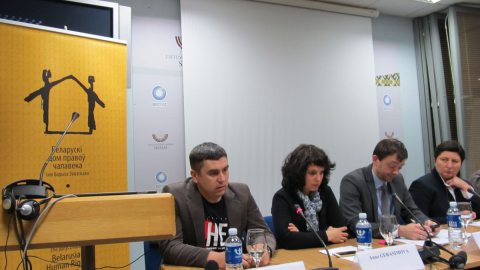Belarusian issues discussed in Lithuanian Seimas (photo)
On December 9, the eve of Human Rights Day, Vilnius hosted a discussion attended by Belarusian and Lithuanian human rights activists, community leaders and relatives of political prisoners, as well as a photo exhibition dedicated to the death penalty in Belarus.
The discussion of the Belarusian situation was attended by representatives of embassies of European countries – Sweden, Poland, the UK, Finland and others, as well as the embassies of Russia and Belarus.
The events were organized by the Barys Zvozskau Belarusian Human Rights House together with Freedom House and were aimed at highlighting the main issues of the country’s human rights situation and outlining new trends.
For instance, preventive detentions of political and social activists on the eve of important political events were mentioned as one of the most disturbing and dangerous recent trends. During the discussion “The human rights situation in the Belarusian in the spotlight: the challenges and expectations on the eve of 2015” the participants had an opportunity to share views and opinions on the prospects of Belarus in the field of human rights on the eve of the upcoming presidential elections.

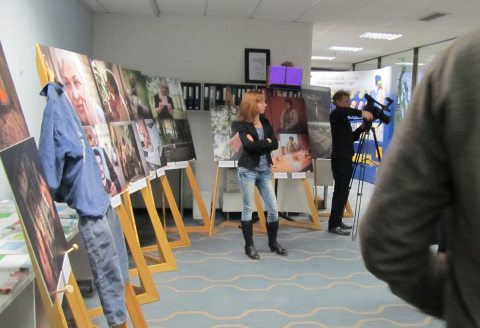
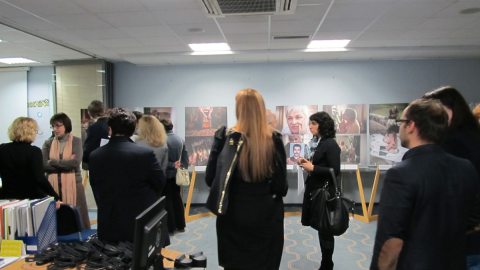
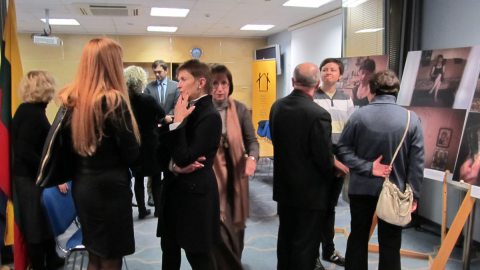
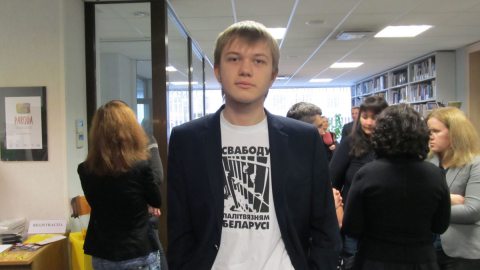
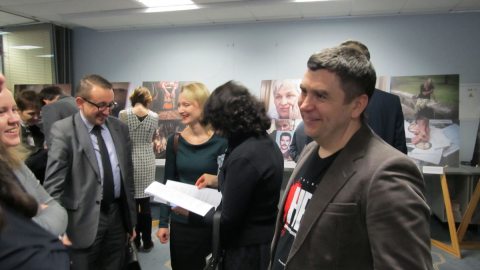
“Elections will bring the same chain of events and trends as in previous year: first, we will see some liberalization, the situation will be more lenient, the authorities will demonstrate a willingness to engage in dialogue, then the elections will take place and the repression will start over,” said Anna Gerasimova, director of the Barys Zvozskau Belarusian Human Rights House. Anna Gerasimova also shared expectations of the human rights defenders about future Universal Periodic Review of Belarus to the United Nations. UPR is designed to improve the human rights situation at the local level, to promote the implementation of the state obligations in the field of human rights and to strengthen the capacity of the state in the protection of human rights. The human rights situation in each country is reviewed every five years. As Anna Gerasimova noted, in 2010, Belarus has already received a number of recommendations as part of that review, but none of the essential ones - on the right to freedom of expression, freedom of association, death penalty or political prisoners - have not been implemented.
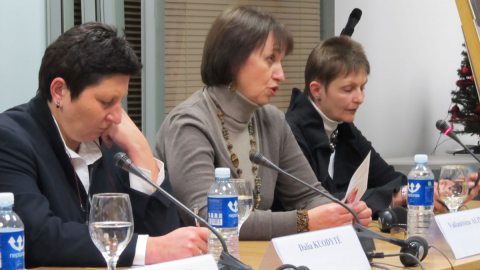
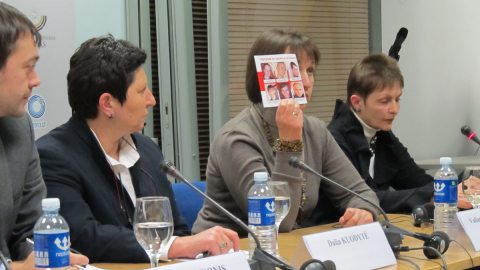
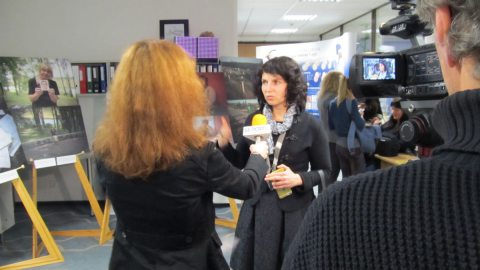
The relatives of political prisoners, who were present at the discussion, thanked the international community for its support and stressed the need for solidarity and principled position of politicians in relation to cooperation with the Belarusian authorities. Vitis Jurkonis, Freedom House project director, in turn, noted that the issue of political prisoners is not measured by quantitative indicators and is of extreme importance: “Despite the fact that now in comparison with the events in Ukraine and a number of repressions in Azerbaijan , Belarusian situation seems stable, the question about the number of political prisoners is not central. The central issue is lack of justice, because anyone may be “appointed” guilty.”
The problem of death penalty was mentioned as one of the most sensitive issues in the Belarusian human rights situation. As the coordinator of the campaign “Human Rights Defenders Against the Death Penalty in Belarus” Andrei Paluda noted in 2014 in Belarus three death sentences have been already carried out, and of the convicts is currently awaiting execution. In Belarus, the death sentences are executed in strict secrecy, the convicts, their families and legal representatives are not properly notified about it. Despite the requests of relatives, the burial place of the shot convict is also kept secret and that, as noted by Andrei Paluda is considered by human rights defenders as cruel and inhuman treatment of relatives of executed. The photo exhibition of Siarhei Balai “Capital Punishment” is dedicated to the mothers of the executed men. In addition to photographs the participants could see the prison uniform of Aliaksandr Hrunou, whose sentence was carried out in October 2014. Prison uniform with the abbreviation “IMN” - exceptional measure of punishment - was sent to Aliaksandr’s mother after the execution. “This is not just ill-treatment, it is an abuse,” said Andrei Paluda.
